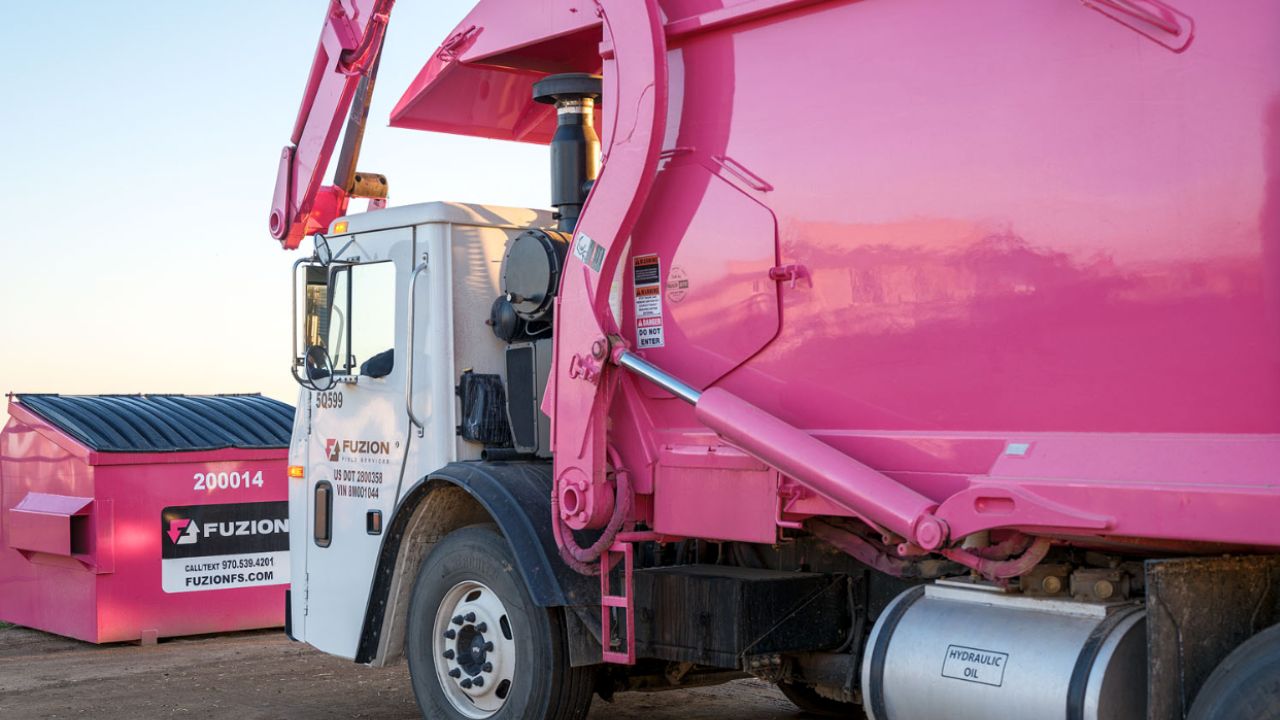The Future of Waste Management and ESG
- Blog
Waste management innovations are transforming how industries approach environmental challenges, guided by the integration of ESG principles. Advancements in recycling, resource recovery, and sustainability practices are paving the way for more efficient systems.
This article examines the trends, practices, and opportunities shaping the future of waste management and highlights how ESG frameworks are driving progress.
Shaping the Future of Waste Management
Modern waste management focuses on sustainable resource use rather than just disposal. The incorporation of Environmental, Social, and Governance (ESG) frameworks has aligned waste management strategies with broader goals of environmental accountability and social responsibility. These approaches address waste reduction alongside transparent reporting and long-term resource planning.
Current Trends Shaping the Future of Waste Management
The waste management industry is undergoing significant changes, driven by advancements in technology, shifting economic models, and the growing influence of ESG principles.
Technological Innovations
Technology is revolutionizing the waste management industry. AI-powered systems improve recycling by identifying materials with precision, increasing recovery rates and reducing contamination. Robotics and IoT-enabled sensors optimize collection routes and schedules, helping facilities operate with greater efficiency. These advancements save energy while improving the effectiveness of resource recovery efforts.
Circular Economy Practices
The circular economy focuses on reducing waste by keeping materials in use for as long as possible. Businesses adopting this model convert waste into valuable raw materials, reducing reliance on finite resources. For example, advanced processing technologies now enable plastics to be repurposed into new products, creating a closed-loop system that benefits both the environment and the economy.
Waste-to-Energy Solutions
Waste-to-energy (WTE) facilities are evolving to serve dual purposes: reducing landfill usage and generating renewable energy. Modern plants incorporate emissions-control technologies, making WTE a cleaner option for waste disposal. These systems can produce electricity or heat, adding value to materials that would otherwise go to waste.
These trends not only improve efficiency but also demonstrate how ESG frameworks are becoming increasingly integrated into waste management practices.
Integrating ESG Principles in Waste Management

Integrating ESG principles into waste management creates a framework for organizations to align environmental goals with social responsibility and transparent governance.
Environmental Impact
Organizations are prioritizing ESG principles to reduce greenhouse gas emissions and minimize landfill dependency. Practices such as composting and electronic waste recycling align waste management with environmental objectives. By incorporating sustainable resource management strategies, businesses can better track and reduce their environmental footprint while meeting sustainability goals.
Social Responsibility
Waste management companies are taking significant steps toward fostering social responsibility. This includes community engagement programs to promote recycling and safety measures that protect workers. These efforts build trust and ensure ethical practices throughout the waste management process.
Governance and Reporting
Transparent ESG reporting has become integral to waste management strategies. By meeting regulatory requirements and providing accurate disclosures, businesses can maintain investor confidence and avoid reputational risks. Aligning operations with ESG compliance frameworks ensures organizations stay ahead of evolving regulations and market expectations. Recent data indicates that nearly 90% of global investors prioritize companies with strong ESG frameworks, demonstrating the growing emphasis on sustainable business practices. Additionally, organizations that adopt ESG compliance report a 20% reduction in operational waste on average, showcasing the tangible benefits of these frameworks.
Integrating ESG principles not only strengthens waste management systems but also positions businesses for success in a sustainability-focused marketplace.
Innovative Strategies in Waste Management
Innovative approaches in waste management are addressing long-standing challenges by introducing groundbreaking solutions that prioritize sustainability and efficiency.
Biotechnological Advancements
New recycling methods are unlocking opportunities to address waste at the molecular level. Enzyme-based recycling, for instance, can break down materials like nylon, allowing them to be reused indefinitely. These methods reduce waste accumulation and contribute to a circular economy. For example, companies are now repurposing enzyme-treated plastics into high-quality textiles, reducing reliance on virgin materials.
Smart Waste Management Systems
IoT and data analytics are being used to monitor bin levels and waste types in real time. These technologies streamline collection processes, reducing the environmental impact of unnecessary trips while improving overall efficiency. Municipalities using IoT sensors report cost savings of up to 30% on waste collection expenses.
Upcycling and Resource Recovery
Upcycling transforms discarded materials into high-value products. This approach not only reduces waste but also opens doors for economic growth by creating new opportunities for businesses and consumers alike. For instance, scrap wood is now being converted into artisanal furniture, showcasing the economic potential of waste materials.
These innovations highlight the industry’s adaptability in meeting the demands of ESG compliance and sustainability.
Challenges and Opportunities in ESG and Waste Management
The intersection of ESG and waste management presents both obstacles to overcome and opportunities to drive sustainable progress in the industry.
Regulatory Compliance
Global regulations present challenges for waste management companies operating across diverse jurisdictions. However, proactive compliance not only mitigates risks but also positions businesses as industry leaders. Stricter ESG standards are already reshaping practices in industries such as construction and manufacturing.
Market Demand for Sustainability
Consumer and investor expectations for transparency in sustainability practices are rising. Companies that align their waste management strategies with ESG principles gain a competitive advantage and foster long-term trust. For instance, brands with strong ESG records are increasingly favored by environmentally conscious consumers.
Global Waste Generation
The increase in global waste production poses a significant challenge, particularly in resource-constrained regions. Scalable and innovative solutions will be essential to manage growing waste volumes while meeting sustainability objectives. Reports indicate that global waste generation could rise by 70% by 2050, emphasizing the urgency of sustainable solutions.
While challenges persist, they are matched by opportunities to reimagine waste management for a sustainable future.
The Future Outlook
Emerging technologies like AI and blockchain are expected to play an even greater role in waste management efficiency and transparency. Stricter ESG regulations will likely drive companies to adopt innovative practices that meet both environmental and economic targets. Additionally, waste management strategies are set to align more closely with global sustainability objectives, such as the United Nations Sustainable Development Goals (SDGs).
Optimize Your Waste Management with Fuzion

Fuzion provides comprehensive waste management services designed to integrate ESG compliance and sustainable practices. Partnering with us allows businesses to reduce their environmental footprint while meeting industry sustainability goals.
Our solutions address the challenges of modern waste management with efficiency and responsibility.
Contact us today for more information.